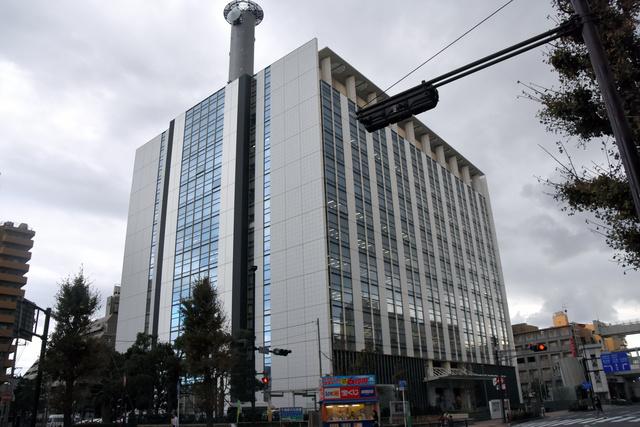The return of Jordanian Syrian refu...
21
05
The return of Jordanian Syrian refugees: indifference is to forget the past "cooling-off period" or a "betrayal" of humanity
After Triffon returned to power in Afghanistan in August, Japan, Europe and the United States, focusing on Afghan refugees who wanted to flee abroad, suddenly became active in their efforts to help them.
I would like to pay tribute to the activities of the poor people of the Middle East who have suffered from conflict terrorism and religious extremism to extend a redeeming hand. But contrary to temporary sympathy for the miserable people of the Middle East, their interest in resuming the posture of daily life is too low.
The 2011 "Arab Spring" spread to Syria, where there was a civil war in Syria known as "the worst humanitarian crisis of this century". Syrian refugees fleeing Islamic State terrorism, government and anti-establishment fighting (more specifically, given the European refugee crisis in 2015. The unexpected response to refugees in Europe, the United States and Japan) has received a lot of attention.
According to UNHCR (Office of the United Nations High Commissioner for Refugees), as of September 23, 2021, 5649644 people had been registered as refugees in Turkey, Lebanon and Jordan. Many of them are still forced to live a hard life. At present, however, sympathy for the people of the Middle East will hardly turn to them.
Western countries stubbornly insist that Syria is still not suitable for refugees to return. The logic that refugees aspire to return to a worse environment contributes to their current difficulties and their indifference to themselves. Of course, the fact that Syrian refugees are gradually returning will go unnoticed.
A fresh start for returning refugees from Jordan
The return of Syrian refugees from Jordan was resumed on 1 October. However, there are few reports in Japan and Western countries.
According to UNHCR, as of August 31, 2021, there were 670637 Syrian refugees in Jordan. They have been living in refuge everywhere for a long time, but they began to return gradually after the reopening of the Nazib-Javier border crossing linking Syria and Jordan on 15 October 2018. This figure reaches 400-600 people a day.
However, the movement was stalled by the Corona disaster. On 10 March 2020, as part of measures to prevent the infection of novel coronavirus, the Government of Jordan banned the crossing at the Nassub-Javille border crossing point, and after 16 March, the return of refugees by land became impossible.
The Nassub-Javier border crossing reopened on 17 April 2021 and allowed up to 150 travellers a day on 3 May. However, it did not lead to the recovery of the return of the refugees. Since the end of June, following the deterioration of security in Dar'a district, the Jordanian Government again closed the Nazib-Javier border crossing on 31 July.
The deterioration and convergence of public security in Dahl County
The deterioration of law and order in Dar'a district is due to the fact that the Syrian Government authorities have asked former anti-institutional members of Dar County to carry out procedures for the transfer of weapons owned by individuals and their reintegration into society.
Known as the "birthplace of the Syrian revolution," the city of Daha, which is mainly known as the birthplace of the Syrian revolution, has returned to the control of the Syrian government before November 2018. Since then, however, attacks on Syrian troops, government officials and facilities have followed, and the unstable security situation continues.
They objected to the request by the Syrian Government authorities in late June for former anti-institutional members in the area to respond to the extradition of weapons owned by individuals and the procedures involved in reintegration. Some of them were standing in the Darabalad area of Dar'a City, while attacks on Syrian army and government officials occurred one after another in various parts of the county.
In response, the Syrian army cordoned off the Dar-Ballard area and launched an offensive against former anti-regime members. In a series of chaos, not only Syrian army soldiers and anti-regime members, but also residents have suffered casualties. However, unlike the uproar of some anti-establishment factions, the Syrian army's attacks are not aimed at obliterating former anti-establishment members and residents. The aim is to create an environment suitable for rehabilitation through the reintegration of former anti-institutional members and the restoration of law and order.
In the fighting in the Dar-Barado region, a reconciliation agreement was reached between the Syrian Government authorities (the Security Council) and representatives of former anti-institutional members in the region (the Central Committee) through Russian intermediaries before 31 August. Those who refused reconciliation and their 87 families were transferred to northern Aleppo province under Turkish occupation on 24 and 26 August. Some of them were rejected by the Turkish occupation authorities and transferred by the Liberation Organization of Sham to Idlib province, which holds military and security powers.
In addition, under the agreement, some 1,200 former anti-institutional members, wanted persons and military service repellents were disarmed and reintegrated into society. Similar settlement agreements have been reached in other parts of Darya province. According to the Syrian Human Rights Monitoring Mission operating in the United Kingdom, before September 29, in Tafas, Nava, Muzaili, Tal-Sihab, Dayir, Sahum-Jaulan, Shajala, Tasul and Yaduda Village. About 2900 people completed the same procedure.
Improve relations with Jordan
While the security situation in Dar'a province has improved, relations between Syria and Jordan have also made sudden progress.
Jordan severed diplomatic relations with Syria in 2011, when the Arab Spring spread to Syria, and it served as a base for anti-establishment and Western support throughout the mid-2010s. However, with the return of north-western Syria, including Dar County, to the control of the Syrian Government in 2018, the Nazib-Javier border crossing was restored on 15 October 2018, as mentioned earlier. In January 2019, he decided to send an interim ambassador to the Embassy in Syria.
The move to improve relations with Syria was tripped by pressure and coronal disaster from the administration of Donald Trump (Donald Trump) in the US government, but accelerated again by severe fuel shortages in Lebanon, where the economic crisis was respite.
This action was promoted on September 8 by an agreement between the governments of Egypt, Lebanon, Jordan and Syria to supply Egyptian natural gas to Lebanon through the Arab gas pipeline. The 1200-kilometer-long Arab natural gas pipeline is a pipeline that carries natural gas from Egypt's Sinai Peninsula to Jordan, Syria and Lebanon.
The agreement is a request of the United States government Joe Joe Biden for Lebanon. The supply of Egyptian natural gas to Lebanon through Jordan and Syria contravenes the sanctions imposed by the United States on Syria, specifically prohibiting the import and trade of oil and petroleum products from Syria. Presidential decree No. 13582 (17 August 2011). But the Biden regime acquiesced in violations of sanctions by Egypt, Lebanon and Jordan.
From September 26 to 27, the Minister of economy and Foreign Trade of Mohamed Samir Khalil of Syria, the Minister of Water Resources of Tamam Laad, the Minister of Agriculture and Agricultural Reform of Mohamed Hassan Kattna, and the Minister of Electric Power of Gassane Zamir paid an official visit to Jordan and held expanded meetings with relevant ministers to trade, transport and electricity. Consultations were held on strengthening bilateral cooperation in agriculture, water resources and other fields.
In conjunction with this meeting the Jordanian Ministry of the Interior issued a statement on 27 September announcing its decision to fully restore the Nassub-Javille border crossing on 29 September. In addition, Jordanian Transport Minister Wazif Azaiza also announced that the operation of passenger flights between Syria and Jordan of Royal Jordan Airlines would be resumed on October 3.
With regard to the move, State Department Deputy spokeswoman Jarina Porter welcomed the resumption of Royal Jordan Airlines, adding that "the State Department is studying this announcement."
In view of this, Syrian refugees returned from Jordan on 1 October for the first time in a year and seven months. According to the refugee reception and transfer centre under the Russian Joint Coordination Centre, 230 people (including 69 women and 117 children) returned on 1 October, 47 on 2 days (14 women and 24 children) and 47 on 3 days (14 women and 24 children).
According to the Centre, the number of Syrian refugees returning from Jordan since 18 July 2018 is 395572 (of which 118715 are women and 201734 are children).
On October 3rd, President Bashar al-Assad and King Abdul II held their first telephone conversation in a decade. The Syrian presidential palace and the Jordanian state-run Petra newsletter said that the talks were held at the request of President Bashar al-Assad and exchanged views on relations between the two countries and ways to strengthen cooperation.
Syrian Restoration advancing in the Arab World
Actions aimed at improving relations with the Syrian Government are not limited to Jordan.
The United Arab Emirates (UAE), which repaired relations with the Syrian government in 2018, lifted its ban on the issuance of tourist visas to Syrians on September 20. On September 22nd, UAE Minister of Energy and Infrastructure Sukhail Mazroyi held talks with Syrian Minister of Water Resources Tamam Laad, who is visiting the UAE to attend the Fifth Arab Water Forum held by the Dubai Trade Center. "contribute to the revival of Syria and strengthen development." We are ready to restore Syria to the state it was before the decade-long war. "
In addition, on October 3, Mohamed Samir Khalil Minister of economy and Foreign Trade opened the 2020 Dubai International Expo in cooperation with the visiting Dubai, Abdul Tauk UAE economy Minister talks on the resumption of activities of the Syrian United Arab Emirates Business people's Consultative Council and other outstanding issues in economic relations between the two countries were discussed.
At the 76th UN General Assembly held from September 14 to 27, Faissal Mikdad, Minister of Foreign Affairs and resident abroad, visited New York, USA. In addition to the foreign ministers of Algeria, Iraq, Oman, the United Arab Emirates and other friendly countries, he also held talks with Egyptian Foreign Minister Miraf Schkeley on the 24th. The talks between the foreign ministers of the two countries are the first since the Arab Spring spread to Syria in 2011.
In an interview with CNN Masur on October 2nd, Foreign Minister Shukli made the following points clear about the talks and expressed his willingness to lead the restoration of Syria's position in the Arab world.
The eradication of Syria from the Arab League is forcibly dominated by Saudi Arabia and Qatar, among which Saudi Arabia has softened its attitude towards Syria since 2019 and resumed importing agricultural products through Jordan. On 18 November 2020, the Al Aar border crossing, which has been closed for 30 years, has been restored and trade will also be conducted through Iraq.
Qatar remains tough on the Syrian Government, but in July 2019 Qatar Airways began to resume passenger flights over Syria and paid the Syrian authorities a high-altitude transit fee of $150 per aircraft.
Under the circumstances that Syria's restoration of power in the Arab world is of practical significance, it is still uncertain whether the so-called western developed countries, such as Europe and the United States, Japan, Austria and Canada, will make up their mind to improve relations with the Syrian government.
However, the indifference to Syria in these countries, including Japan, can also be seen as a humanitarian basis for conceit as the basis of their existence, forgetting the past of stubborn sanctions and intervention against Syria, and using it as a "cooling-off period" for parting.
After this "cooling-off period", if these countries accomplish nothing and are determined to improve their relations with the Syrian government, European, American and Japanese citizens who have humanely sympathized with the tragedy in Syria will be removed by their own government. Or, like the governments of these countries, it would be the greatest betrayal of the self that should have been based on humanity if citizens looked away from Syria.


![[Kill personally developed games] Top class in app history! Too beautiful water puzzle "a [Q] ua" | Famitsu App for smartphone game information [Kill personally developed games] Top class in app history! Too beautiful water puzzle "a [Q] ua" | Famitsu App for smartphone game information](https://website-google-hk.oss-cn-hongkong.aliyuncs.com/drawing/article_results_7/2022/3/3/66755df992ff2d2b1e1ab43844ef9f88_0.jpeg)





![[Latest in 2021] 10 recommended seat covers for cars!If you want to improve the texture and functionality of the car, choose the mounting type and material. [Latest in 2021] 10 recommended seat covers for cars!If you want to improve the texture and functionality of the car, choose the mounting type and material.](https://website-google-hk.oss-cn-hongkong.aliyuncs.com/drawing/article_results_7/2022/3/3/e5b44589e77141f3a633189165fb6f60_0.jpeg)